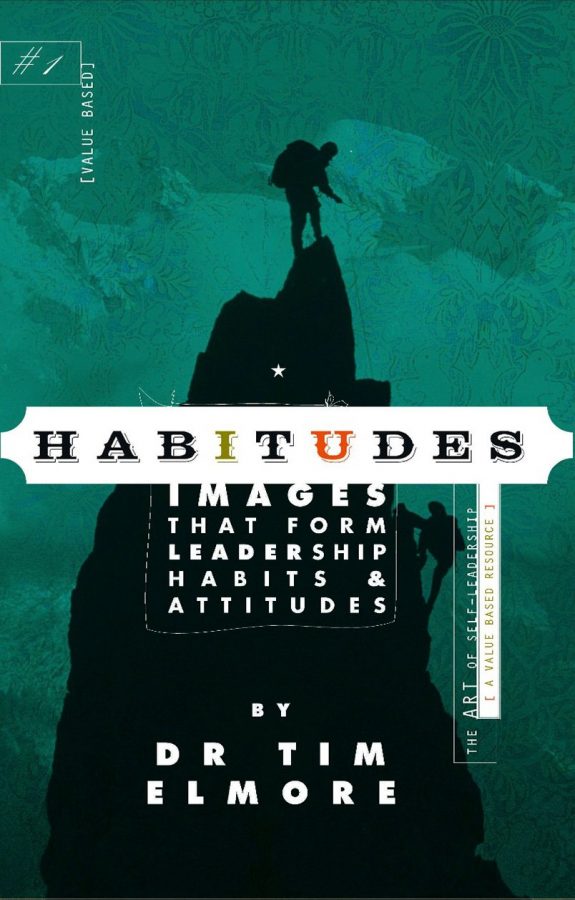Opinion | Leadership curriculum should remove antisemitic book
December 14, 2020
When choosing classes for my junior year, I was excited to take Junior Leadership for PE. I wanted to be a part of a community that focused on helping others around the school and building a positive learning environment. After starting the class and beginning to read the Habitudes book, an element of the class’ core curriculum that is intended to teach leadership lessons to students, what I found was completely different. I stopped in my tracks when the very first chapter of the book said, and I quote, “History proves that Adolf Hitler was a great leader….”
As I read more of the book, I realized how this was not its only example of problematic language. The full quote reads, “About 100 years ago, a boy grew up in Europe… As a teen,… his parents never taught him right from wrong, so he began to come up with his own ideas and values… This boy grew up to be a man. The man became a leader. You know him as Adolf Hitler. History proves that Adolf Hitler was a great leader, but he wasn’t a good one… He sabotaged himself–but not until he had slaughtered six million people along the way.” This quote not only identifies Hitler as a “great leader” but diminishes the devastating impact he had. First, the author seems to use Hitler’s childhood as an excuse for his actions. Then, he frames the killing of six million people (he doesn’t even name the victims as Jewish, Romani, disabled and queer people) as secondary to his self-sabotage.
Later in the book, it says, “Nelson Mandela, former leader of South Africa, Truett Cathy, founder of Chick-fil-A restaurants, and Mother Teresa are respected … because people know them as leaders who live by certain values and won’t drift from them.”
By placing the values of Nelson Mandela and Truett Cathy side by side, it sends the message that they should both be viewed in a positive light. While Mandela fought tirelessly against racism and discrimination, Truett Cathy was blatantly homophobic by financing conversion therapy and anti-LGBTQ organizations. While one could technically say both of these figures follow their values, their values are drastically different and lead to hugely different outcomes in terms of justice and morality.
Because of these negative book references— and the pushback I got when I tried to speak up about them— I decided Senior Leadership wasn’t for me. When a friend texted me about another reference to Hitler in her Senior Leadership Habitudes book, I wasn’t immediately surprised, but what it said still shocked me: “Adolf Hitler… ended up committing suicide because he saw no other alternative. How sad.” I, for one, am not sad that Hitler committed suicide. I am sad, before he did so, millions of people lost their lives because of him. Not only was he an absolutely despicable person, but if he had continued to live, many more Jewish people, Romani people and other minorities who were victims of Nazis wouldn’t be alive today.
This dismissiveness of real oppression is not an isolated incident for Tim Elmore, the author of the Habitudes books used in Junior and Senior Leadership’s curriculum. It is a consistent pattern. In a list of 52 activities that Elmore believes grow leadership potential in children, he creates a game that can be played with kids out of Jewish children hiding in secret spaces during the Holocaust. Further, in a blog post on the Growing Leaders website, Elmore uses the Pittsburgh synagogue shooting, where Jewish people were slaughtered for existing, as an example of “high road leadership.” Additionally, Elmore’s other writings display consistent examples of homophobia and sexism. In a book about Generation Z, he diminishes queerness as “gender bending,” saying it becomes a problem when children encounter too many household chemicals that change their hormone levels. He says he is worried about young men losing their masculinity when they are taught by “misguided feminist educators.”
Habitudes is also an overtly Christian organization, which is inappropriate for a public school to use as curriculum. They state their mission as a “revolutionary youth ministry resource designed using the latest research, which can help you instill lasting values in your students.” While ETHS purchases the secularized versions of the books, Elmore still places his personal religious and moral beliefs in the forefront throughout.
After the results of the 2016 presidential election, District 202 Superintendent Eric Witherspoon said to the student body, “You attend a school where we not only respect differences, … we embrace… and value you as individual human beings. Never forget: you belong here at ETHS.” By continuing to support the Habitudes books, ETHS’ PE department is inadvertently sending the message that Jewish students, LGBTQ+ students and students of other marginalized identities are not valued, that our trauma is collateral damage to the benefit of our classmates’ learning. It is time for ETHS to choose another resource that truly teaches effective leadership rather than one that is blatantly antisemitic and homophobic.








